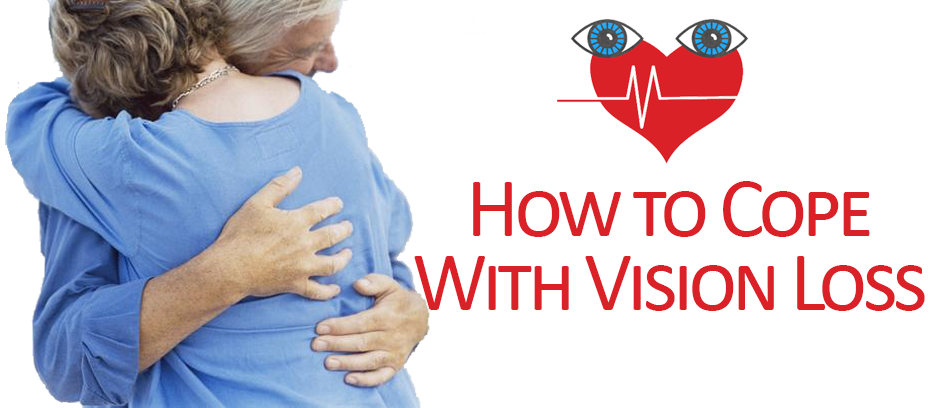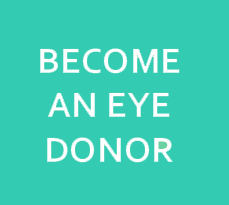

| Has losing your vision taken from you of many of the things you once enjoyed? Do you feel lonely and isolated in your house? Have you given up on many enjoyable and everyday things such as driving and are no longer able to read or watch television? If you have experienced any of these things, you probably feel angry, depressed, and overwhelmed by life. But you are not alone.
Each year, hundreds of Americans experience a change in their lifestyle due to vision loss. Don’t lose hope, putting out of your mind all the old images and stereotypes you previously held about blindness and how people function is the first step along the road back to independence. After all, vision loss did not take away your ability to think, carry on a normal conversation, or your desire to help others. People with low vision or total blindness are not so much different than those who have full vision health, in fact many of them are working in competitive jobs, doing volunteer work, and serving as leaders in their communities. Even before you may have lost your vision, you may not know but you have been assisted, helped or provided by a visually impaired person. They exist in our everyday lives. The second thing to remember is that there is usually a solution to every situation you are facing, even difficulties stemming from vision loss. The third thing to remember is that there are many ways to accomplish a task without full visual sense. If you use oven mitts to remove an item from an oven rather than using a pot holder, it really doesn't matter--the food still tastes the same. Marking medicines with adhesive-backed dots, large print labels or talking prescription labels means you know exactly where your medications are and when to take them. Folding a five dollar bill one way and a ten dollar bill another, will ensure that when you make a purchase, you will know exactly what money you are handing the clerk. Learning about these little things will give you a feeling of pride and help you take the bigger steps toward independence. There are very minor modifications you have to make but slightly a little more to get used to, it’s a new life with new challenges to overcome. There are many products designed to help visually impaired people return to work competitively, read newspapers, and participate in recreational activities. For some of these products, you may visit our marketplace. |

Start by getting more organized! Since you can't glance in the cupboard to find the can of mushroom soup, develop a system that makes sense to you for locating various food items. Vegetables may go on one shelf and fruits on another. Taking pre-made labels to the grocery store and placing them on the items as you purchase them will help you when you are putting the groceries away. Whatever system you create, stick to it, and ask your family members to follow it. After a while, forming these new habits will become second nature and automatic. Think of each room in your house and the things you need to find on a regular basis. You want to know where your favorite shirt is, the stack of bills that need to be paid, and important telephone numbers. You don't have to spend lots of money to get organized. Pill boxes work nicely for storing earrings, plastic containers rather than the coffee table can be used for keeping important papers together, and big print check registers, calendars and address books can be very helpful in locating information you need quickly. |

One of the hardest adjustments to vision loss is having to ask for help when you are used to doing things yourself. Remember, your family and friends feel just as awkward as you do. They may want to help you but don't know how. The more you can tell them about how to help you or not help you, the less awkward they will feel. You will quickly determine which people genuinely don't mind picking you up, will help sort through mail, or assist in your initial organization efforts. If you were a contributing member of a group, the members will still want you to be a part of it. People want to spend time with you because of who you are, and will usually make the effort to get you where you need to go. Having a meeting at your house will solve the problem of transportation and will give you confidence in your ability to serve as a host or hostess. Asking for help will never be easy no matter how long you are visually impaired. However, if you think about it, everybody asks for help from somebody. Parents help their children, employers help their employees, and neighbors help each other. The more opportunities you have to demonstrate how you do things despite vision loss, the less awkward people will feel. |

I still have some remaining vision. If I use a white cane, won't I be misleading people? I don't want to look blinder than I really am.
Should I learn Braille and how long does it take?
How Can I Still Cook? You will want to have all your spices labeled and in a location where you can find them with ease. For items you use often, it would be helpful to copy the package directions into a notebook organized by food type, pastas, vegetables etc. The more information you have in whatever format you find easiest to read, the less you will have to ask others to help you. Products like pie cutting guides, measuring cups with raised markings, elbow-length oven mitts, and timers with easy-read dots are all designed to help visually impaired people to prepare delicious meals with ease.
|

Heritage for the Blind
© 2017
Donor Privacy Policy


